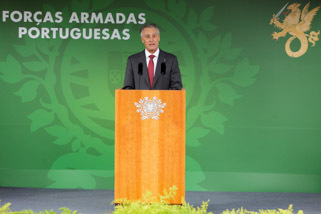

Having enacted, to be published as law, Parliamentary Decree No. 66/XI, that "Reduces the public funding and the maximum limits of expenditure in electoral campaigns", I decided to address Parliament the following message as foreseen under item d) of article No. 133 of the Constitution:
1 – Although the enactment of legislation does not involve the total acceptance of all the legal implications contained therein, I consider that the reduction of public funding and of the maximum limits of expenditure in electoral campaigns are, in the current environment, a mandatory provision from which must depend the various issues raised in this bill; it should equally be stressed that, since this bill is immediately applicable, its provisions will imply a reduction of the funding and of the limits of campaign expenditure relative to the forthcoming electoral act.
2 – On the other hand it should be emphasized that, relative to Decree No. 285/X – that was returned to Parliament without being enacted – the current bill contains considerable changes in the sense of a greater transparency and containment of costs, specifically in respect of the limitation imposed on the value of cash revenues not covered by cheque or other banking means, as to the value of revenues resulting from funding initiatives and to the possibility of accumulating surpluses from electoral campaigns which, should these exist, must revert to the State.
3 – It is however true that Decree No. 66/XI places queries as to the transparency and control of political funding – which had anyway emerged previously with reference to Decree No. 285/X and that were not fully settled.
4 – Amongst these immediately arises that which derives from the absence of a material criterion determining the concept of fund collection. In the absence of such a criterion, the provision contained in No. 2 of article No. 6 deems «the yield from fund collection as the amount resulting from the difference between revenue and expenditure of collection activities». Nevertheless, when considering as funds collected the net result of the action to obtain such funds, it is possible, for instance, that sizeable promotional or similar events, with very extensive costs, become qualified for this purpose as fund collection activities, and could mean that all the costs deriving from such actions would, in the end, correspond to expenses with no limits imposed.
Adding to which the provisions of No. 2 of article No. 6, taken jointly with those of No. 4 of article No. 18, could result in a tendency towards increasing expenditure, thus subverting the intentions of the legislators and the spirit of the bill now admitted for enactment, since the expenses deriving from the fund collection activities would no longer be deducted from the amount funded by the State.
5 – On another hand, item b) of No. 1 of article No. 3, while defining the revenues peculiar to the political parties, now includes not just the contributions of the elected representatives – as is the case with the legislation in force – but also the contributions of the candidates, whose income and assets, as is known, are not as a rule subject to the supervision called for in Law No. 4/83, dated 2 April. As such, there is a potential risk for a candidate to indirectly fund a political party with financial contributions that he may have obtained from third parties without it being possible to formally control this.
6 – These legal options, undoubtedly questionable, imply that the practical application of the legal provisions contained in this bill demand that politicians and controlling bodies should exert an intensified effort so that situations such as those described above do not occur. It would equally be desirable that, jointly with the controlling bodies, specifically the Accounting and Political Financing Body, a rigorous following up of this bill should be carried out, in order that it be improved as may be eventually required.
7 – In effect, this is the only way in which the bill under review can achieve its objective, while preserving the control and the transparency of funding, of effectively reducing the expenses of political activity, which is the reason that justified its approval and its enactment.
The President of the Republic
Aníbal Cavaco Silva
© 2006-2016 Presidency of the Portuguese Republic
You have gained access to the records of the Official Site of the Presidency of the Republic from 9 March 2006 to 9 March 2016.
The contents available here were entered in the site during the 10 year period covering the two mandates of President of the Republic Aníbal Cavaco Silva.